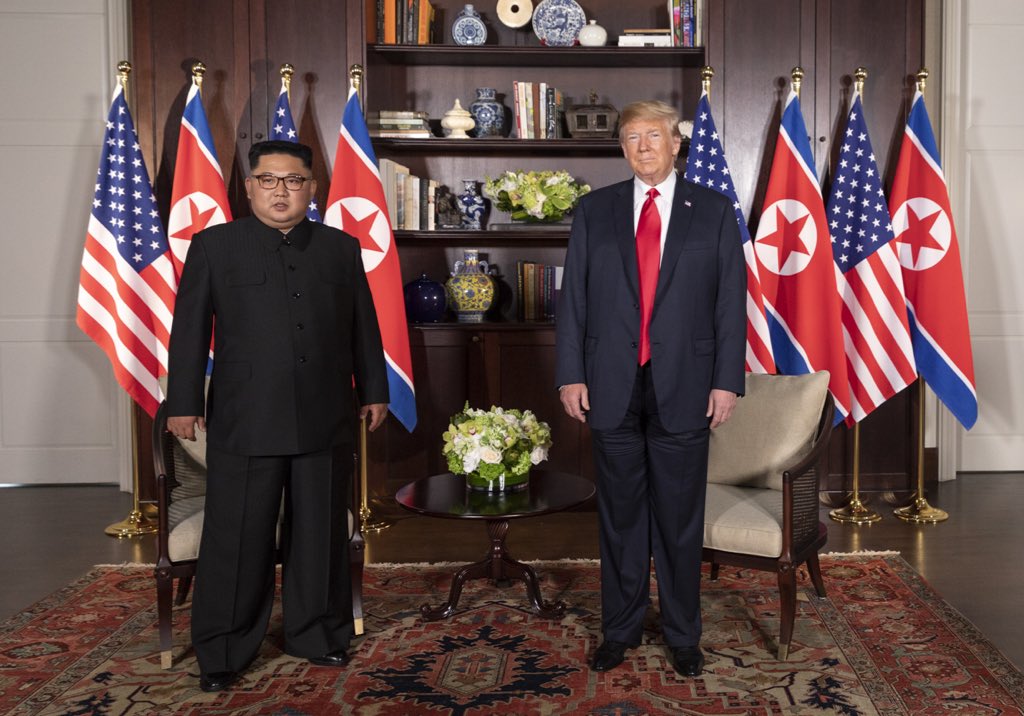
North Korea celebrated its 70th anniversary on September 9 with an annual military parade. Coming in the wake of U.S.-North Korean negotiations over peace on the Peninsula and denuclearization, this year’s anniversary celebrations drew significant attention. While the contours of the parade were similar to those of other years, they notably lacked a display of North Korea’s ballistic missile arsenal. Instead, it appears that North Korean leaders carefully cultivated the tone of the celebrations to avoid antagonizing both Beijing and Washington. This could offer reasons for cautious optimism regarding the continuing negotiations, but significant remaining differences in U.S. and North Korean aims and expectations should temper any early celebrations.
North Korea’s military parades are similar to those of other nations in that they attempt to portray the nation’s martial might to domestic and foreign observers. In the international arena, parades can function as a key form of signaling by showing off new weapons systems, emphasizing the unity of the domestic population, and so on. This year’s parade was much like previous parades, featuring soldiers marching in formation alongside a range of military vehicles. However, North Korea did not show off any of its ballistic missiles. These displays are some of the most important in North Korea’s signaling arsenal, because they demonstrate the alleged growth in the country’s capability to strike potential adversaries – including the United States – with nuclear weapons. By choosing not to display its missile arsenal, North Korea signaled its willingness to continue with denuclearization talks and gave the Trump administration an easy diplomatic victory.
China also made headlines this year with President Xi Jinping’s decision not to attend the celebrations. Instead, Li Zhanshu, the chairman of the National People’s Congress Standing Committee, represented China. While some media outlets speculated that Xi would attend the celebrations, his absence would generally not be considered abnormal. No Chinese president has visited North Korea since 2005, and Sino-North Korean relations have been strained in recent years. Some analysts have suggested that Xi’s absence signals China’s dissatisfaction with North Korea’s progress in easing tensions on the Peninsula, but such a reading remains unsupported. Kim Jong Un has visited China three times in the past year, and there is still the possibility of Xi making a trip to Pyongyang in later months.
For its part, North Korea used the celebrations as an opportunity to underscore its improving relationship with China. The anniversary reportedly featured a performance of a popular Chinese song (“Love My China”) and images of Kim holding hands with Li Zhanshu. These choices allowed North Korea to underscore its desire to continue building positive relations with an oft-displeased ally. They also may have been useful in signaling to the United States that it has not managed to drive a wedge between China and North Korea, offering a source of leverage in future negotiations over North Korea’s nuclear arsenal.
The American reaction to North Korea’s anniversary celebrations has been mostly positive thus far. President Trump fired off a trademark series of tweets thanking Kim Jong Un for dropping its ballistic missiles from the parade. This was despite last month’s cancellation of Secretary of State Mike Pompeo’s trip to North Korea on the grounds that insufficient progress had been made on denuclearization. Pompeo previously testified that North Korea did not seem intent on denuclearization and alleged that it may have even been expanding its capabilities in the wake of the talks in Singapore. The U.S. once again seems to be showcasing its schizophrenic foreign policy tendencies, with Trump lauding his personal relationship with Kim while top officials work out the practical details of U.S.-North Korea relations.
Prior to the anniversary celebrations, denuclearization and peace negotiations between the U.S. and North Korea had stalled. Analysts suggest that the root of the issue is a serious disagreement over the meaning of denuclearization. The United States wants North Korea to give up its nuclear weapons and delivery systems, and allow international inspectors to determine if it is living up to any agreement. North Korea, by contrast, probably wants security guarantees and for the United States to withdraw its ‘nuclear umbrella’ over South Korea and Japan. The United States wants North Korea curbed; North Korea wants its strategic encirclement loosened. Despite these differences, Trump and Kim appear poised to schedule another series of talks aimed at salvaging the détente. If there’s any chance for further progress toward peace on the Korean Peninsula, a new summit between the two leaders may be it. Trump and Kim have demonstrated an odd ability to overcome the mutual hostility of their advisors. That said, bridging the gap between U.S. and North Korean expectations may prove too difficult a challenge for two of the world’s most flamboyant national leaders.
